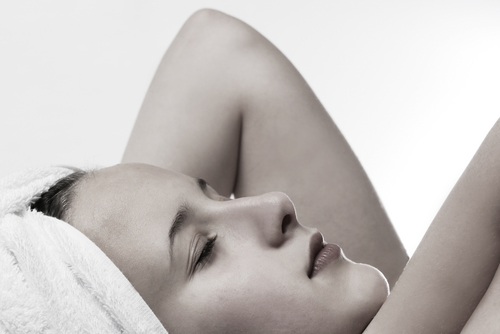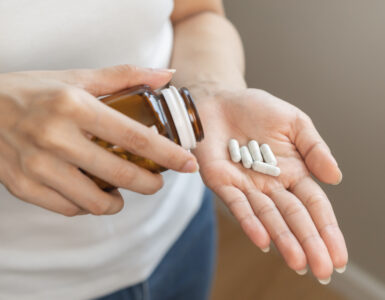Bonnie Steffens from Abare Skin Care Clinic talks about nutritional and alternative therapies, based on scientific research, to give you healthy vibrant skin, especially if you suffer from acne or skin wrinkles.
Vitamin A & E: A recent study involving 100 people with acne and 100 people without acne showed that the group with acne had significantly lower levels of Vitamins A and E in their blood. The conclusion is that there is a strong relationship between a decrease in blood levels of Vitamin A & E and an increase in acne severity.
Caution: Only use Vitamin A according to bottle directions. More is not better. Only all natural Vitamin E should be taken.
Vitamin C: Is known for its antioxidant ability and in collagen production. Topical 5% Vitamin C was shown in studies to improve deep wrinkles, sun damage and skin density and minimizes pores.
Lipoic Acid: Research on Lipoic acid goes back to the 80s. Lipoic acid is involved in the body’s ability to digest damaged collagen and helps erase scars … including acne scars. Lipoic acid is available topically and in pill form.
Zinc: Appears to do three things for you skin: 1) reduces inflammation, 2) kills P-Acnes bacteria and 3) actually changes the environment of your skin to fight off the P-Acne bacteria.
A two-month study with 30 mg of Zinc gluconate one time a day showed a reduction in the number of acne lesions and improved the effectiveness of the antibiotic. Clinical trials also showed that topic zinc compared equally with benzoyl peroxide without the drying or irritation.
Essential Fatty Acids: Omega 3 fatty acids (fish oil capsules): These are well-known for their anti-inflammatory qualities. Studies have shown them to protect the brain against strokes. Because of their anti-inflammatory abilities, it is suggested that they are absorbed through the skin and can reduce inflammation.
Tea Tree Oil: Derived from the leaves of an evergreen that grows in Australia and Asia, the oil has properties in it that kill bacteria including some antibiotic resistant bacteria. A study was done comparing 5% tea tree oil to 5% benzoyl peroxide in the treatment of acne. Tea tree was more effective overall and had less side effects but was slower in action that the BPO.
Herbal therapies: Few scientific studies have been conducted, but the following herbs have anti-inflammatory properties that may be helpful in the treatment of acne:
Calendula, Chamomile, Witch hazel, licorice root.
Light based therapies: Research has reported that after eight bi-weekly treatments of pulsed light therapy, 85 percent of the acne had cleared in 28 adults. Numerous studies show that they are safe and effective in the treatment of acne.















Add comment